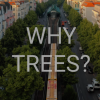News
Displaying Results 1 - 19 of 19
In today’s world of resource scarcity and the triple planetary crises of climate change, nature loss and pollution, many efforts are focused on developing new technologies, tools, products, and services that foster circular and sustainable consumption and production patterns across the textile,…
Taking part in the OECD Science and Technology Policy Ministerial in Paris on 23-24 April, UNECE Executive Secretary Tatiana Molcean stressed the need to harness the full potential of science, technology and innovation to facilitate the shift to clean energy, reduce environmental pressures, and…
The Asia-Pacific region is home to some of the world's largest and most diverse reserves of minerals, energy, water, and biomass. The region accounts for around 70% of global mining production and consumption, including most of the world's bauxite, copper, iron, nickel, silver, tin, and zinc. …
The International Conference on Population and Development (ICPD), held in Cairo in 1994, set a bold new vision of the relationships between population, development, and individual rights and well-being. It recognized that population was not about numbers, but about people, and that individual…
The Republic of Moldova is almost entirely dependent on energy imports as it has no domestic sources of fossil fuels and makes only limited use of its renewable energy potential. At the same time, the energy intensity in the country is 3.4 times higher than the average energy intensity in the…
The Norwegian Government has issued a Mineral Strategy which necessitates the Geological Survey of Norway to produce an inventory aligned with the United Nations Framework Classification for Resources (UNFC).
UNFC will be crucial in this strategy as it will be used to classify mineral resources…
While underground coal mining in Albania stopped almost wholly (except for two private mines with a very insignificant output) more than 15 years ago, the abandonment of the mines from the 1990s onwards with no proper plans for closure has left a legacy of risks. These include water contamination,…
Representatives from Kazakhstan, Kyrgyzstan, Tajikistan, and Uzbekistan met at the United Nations Economic Commission for Europe (UNECE) to discuss ways to unlock the resource potential and promote a sustainable future in Central Asia. The meeting was part of the UNECE Resource Management Week 2023…
Picture your favorite tree-lined street or childhood park. Now picture it without trees. Would it be the same?
On 30 March, at the Regional Forum for Sustainable Development, UNECE debuted the short film “Why Trees?”, which invites us to reflect on our human connection with the trees around us.…
The 61st Commission for Social Development concluded yesterday with the adoption of a resolution calling for acceleration of the implementation of the Madrid International Plan of Action on Ageing (MIPAA). The Commission session concluded the fourth global review and appraisal of MIPAA, which…
In the past years, Central Asia has been facing major climate-change related challenges – drought, floods, desertification, sandstorms, extreme cold and heat spells – and many more. Not only have these affected rural areas, but cities have been suffering, too. Accentuated by increased traffic…
Cities, which are already responsible for around 75% of global CO2 emissions, are also at the forefront of fighting climate change and simultaneously are particularly vulnerable to its impacts. Urban trees and forests have been highlighted as a solution that can help to achieve the SDGs and make…
Policymakers looking for innovative solutions to global problems are increasingly recognizing that the answers have been around for a long time even before the earth got populated by humans. Trees can help achieve pressing global objectives for sustainable development, biodiversity conservation,…
Strengthening the voice and agency of older persons in decisions that affect them is essential to fulfil the 2030 Agenda’s pledge of leaving no-one behind. It is a key step in ensuring that ageing-related issues are accounted for in the design and implementation of policies across various sectors…
A coordinated response is necessary for promoting and implementing the circular economy agenda globally. Concrete commitments from governments, businesses, international organizations, civil society and other stakeholders will be key to building the sustainable, resilient and low-carbon economy…
UNECE continues to help its member States to respond to COVID-19 crisis. As part of this work, Guidelines and Best Practices for Micro-, Small and Medium Enterprises in Delivering Energy-Efficient Products and in Providing Renewable Energy Equipment developed earlier are being customized for North…
Buildings consume over 70 per cent of the electrical power generated and 40 per cent of primary energy and are responsible for 40 per cent of carbon dioxide emissions from related fuel combustion. At the same time, in 2018, out of 4.5 trillion USD spent on building construction and renovation, the…
Hydrogen is not a mere dangerous good. It is perhaps our best chance to attain carbon neutrality by 2050, was the conclusion of a brainstorming on carbon neutrality held at UNECE this week. More than 200 experts attended the online discussion that explored production, transport, storage and use of…
Hydrogen is an innovative solution to help achieve carbon neutrality and other climate targets. In 2019 and 2020 the key players from across the UNECE region came up with decarbonization strategies in which hydrogen is to play a pivotal role. Ukraine is deeply interested in developing…




















